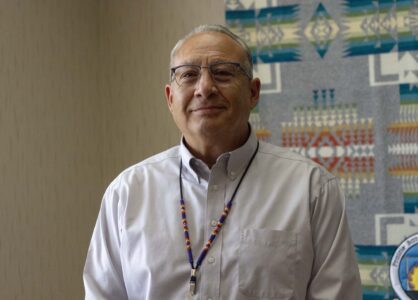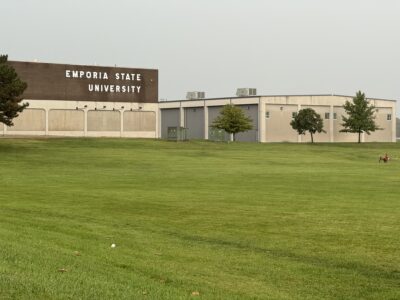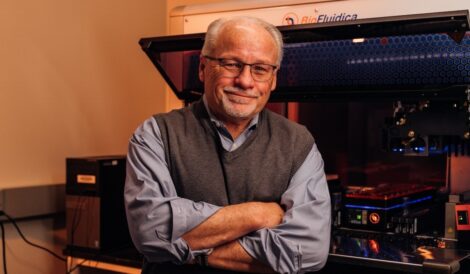Derby school board rejects social studies curriculum; majority says it’s biased against Trump
Wichita — The Derby school district near Wichita has rejected a proposed social studies curriculum for high school students over concerns that some materials are biased against Republican President-elect Donald Trump.
A new conservative majority on the Derby Board of Education voted down a proposed contract with Houghton Mifflin Harcourt for the high school curriculum, which would have cost about $400,000.
The curriculum was recommended by Derby High School teachers, who reviewed six social studies programs over the past year.
Some board members voiced concerns about anti-racism statements on the publisher’s website, as well as the company’s statements about diversity, equity and inclusion. They also said parts of a textbook and online materials do not fairly reflect Trump’s first presidency.
“My biggest concern … involved what I would define as bias of omission,” board member Cathy Boote said.
Boote listed several examples of material she said did not accurately reflect Trump’s actions during his presidency, including his stance on Cuba, trade deals with China, relationships with allies and the Jan. 6 Capitol riot.
“Then there was the ‘Muslim ban,'” Boote said, making air quotes with her fingers. “With no mention of the fact it wasn’t aimed at all Muslim countries, just those that have no ability to vet.
“Safety was the top priority, but they leave it sit there, with no explanation, to make you think he was xenophobic,” she said.
In January 2017, Trump signed an executive order suspending all travel and immigration from seven predominantly Muslim countries. During the campaign for his first term, Trump had called for “a total and complete shutdown of Muslims entering the United States.”
Derby board member Michael Blankenship said he was concerned about some of the points Boote mentioned. He also opposed the new curriculum because of a statement Houghton Mifflin Harcourt made in the aftermath of the murder of George Floyd, who was Black, by a white police officer in 2020.
“We believe Black Lives Matter. We believe in social justice. We believe learning is a fundamental right,” the company said in a June 2020 message posted on its website. “We believe the education system needs to change, and we will continue to use our platform to make that change.”
“That’s a pretty bold statement,” Blankenship said. “Wouldn’t anybody want to know, ‘What do you mean?’ I still don’t have that answer.”
Representatives for Boston-based Houghton Mifflin Harcourt could not be reached for comment Tuesday.
Two years ago, after Derby school board members voiced similar concerns about an elementary social studies curriculum, a company representative said it stood by its statement and continues to support efforts toward diversity.
“This statement was not a political one. Rather, the intent was to express our care and support for Black members of our community — teachers, students, families and employees,” company spokeswoman Leah Riviere said at the time.
“HMH does not advocate for any ideology, political organization or agenda. … Our aim is simply to help teachers teach and students learn.”
The Derby school board approved the Houghton Mifflin Harcourt elementary curriculum in 2022. Since then, four new members were elected to the board, and conservatives have a 4-3 majority.
What teachers think
Derby administrators pushed for a new high school curriculum because teachers have been working without social studies textbooks and other common materials for several years.
Teachers who tested the Houghton Mifflin Harcourt curriculum said they especially liked a “Writable” portion, which emphasizes critical thinking and writing skills.
“It ultimately has the potential to help … improve student writing. It will be something that we can use,” said Kendall Warkentine, a Derby High School social studies teacher who favored the Houghton Mifflin Harcourt curriculum.
Warkentine said few high school history classes focus on events more recent than the 2000 presidential election of George W. Bush, and that historians “don’t really consider the last 20 years to be history.”
Holly Putnam-Jackson, Derby’s assistant superintendent of teaching and learning, said the proposed curriculum aligns with Kansas academic standards for history, government and social studies.
“Our students develop that critical thinking piece, so they don’t see something on Facebook or a news media channel or from a friend and accept it blindly, without … researching it and going back and finding sources,” she told board members.
“Our social studies teachers aim to teach our students … how to think, and not necessarily what to think.”
Three Derby board members — Mark Boline, Tanya Jacobucci and Melanie Turner — voted to approve the proposed high school curriculum. But a majority — Boote, Blankenship, Jennifer Neel and Robyn Pearman — rejected the proposal.
Jacobucci said she trusts teachers who tested the curriculum to know what works in the classroom.
“We are telling our teachers … ‘You’re bringing us your best choice and the one that you think will do the best job, but we want you to find a different choice,’ and I’m not OK with that,” she said.
Boline also urged the board to accept the teachers’ recommendation.
“It seems a little paternalistic this evening, this decision on curriculum, and I can’t imagine that playing well with the teachers who put that work in,” Boline said.
Nationwide debates over curriculum
The Derby decision aligns with broader debates about curriculum control and the teaching of sensitive or political topics in schools.
Florida education officials have rejected dozens of social studies textbooks due to concerns about topics related to social justice and American exceptionalism. Two years ago, they rejected 41% of mathematics textbooks, citing “attempts to indoctrinate students.”
That has forced textbook publishers to revise content to meet state standards.
In Kansas, local school boards — not the state — make decisions about curriculum and textbooks.
After the Derby vote, Neel, the board’s president, directed administrators to look for different textbooks and materials, and teachers who would be willing to try them.
“We need to wait and see if we can’t find better options … or see if some things can cool down,” Neel said. “If and when you think you have two good, neutral products … then bring it back.”
— Suzanne Perez reports for Kansas News Service.






